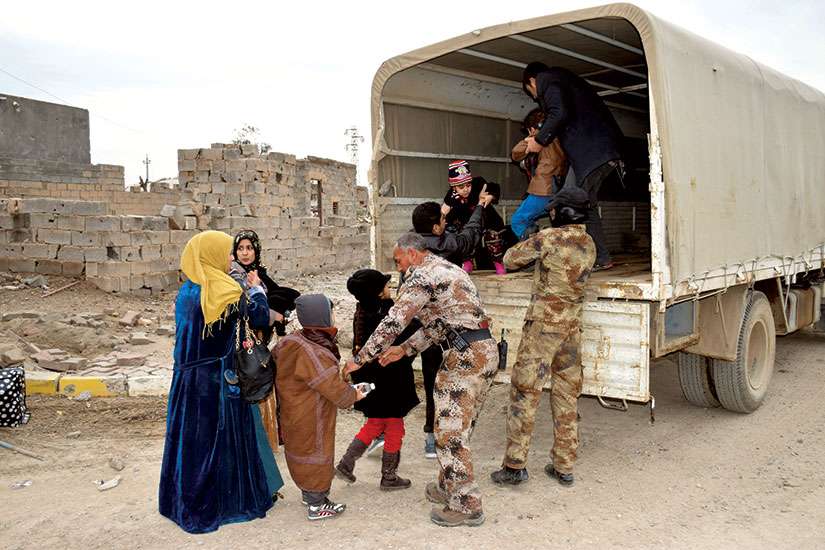The Catholic charity, which supports the Church worldwide, has asked the Canadian government to follow the EU Parliament’s Feb. 4 resolution that called ISIS attacks on Middle East Christians a genocide, a crime punishable under international law.
Canada, however, shows no signs of doing so. In announcing changes to Canada’s Middle East military mission on Feb. 8, Prime Minister Justin Trudeau skirted the issue of genocide and the EU resolution. He confirmed the withdrawal of Canadian combat aircraft, while increasing military personnel to train fighters and gather intelligence.
He also pledged $840 million over three years in direct humanitarian assistance and $270 million for countries hosting refugees.
A spokeswoman for Global Affairs Canada declined to single out genocide in the Middle East in response to questions from Canadian Catholic News.
“Canada continues to be concerned by the violence perpetrated by Islamic State of Iraq and the Levant (ISIL) against civilians, including members of religious and ethnic minorities,” said Diana Khaddaj in an e-mail.
“Canada is committed to preventing and halting genocide, ethnic cleansing, war crimes and crimes against humanity. Canada is also committed to holding perpetrators of such serious international crimes to account.”
The EU Parliament’s Resolution 2091 (2016) states: “the individuals acting in the name of the terrorist organization which calls itself Daesh … have perpetrated acts of genocide and other grave crimes punishable under international law.”
Aid to the Church in Need Canada’s national director Marie- Claude Lalonde suggested Canada should follow the EU example in a Feb. 3 letter to the Prime Minister and Foreign Affairs Minister.
In a news release, Lalonde pointed out Iraq had 1.5 million Christians in 2004 but today only 250,000 remain. A similar population remains in Syria, which had 1.1 million Christians in 2011.
“International law imposes on states and on the international community the obligation to prevent genocide, to defend those groups that are the object of genocide and to convict and punish those responsible,” the Aid to the Church in Need release said.
Anti-terrorism expert John Thompson said “no obligations will kick in” after the EU resolution and “we’re not going to see ISIS prisoners dragged in front of the Hague.” The Strategic Capital Intelligence Group vice president of business intelligence said he suspects Canada’s Liberal government will not support the resolution, because “they are infected with a post-modernist view” that mistakes Christians in the Middle East with a 2,000-year history such as the Assyrian Christians, with the “most obnoxious of Protestant evangelicals and there’s no sympathy for them.”
“A general expression that genocide is bad is something they’re prepared to do, but specifically saying they’re prepared to save Middle Eastern Christians makes them feel all icky.”
Canadian Catholic Organization for Development and Peace In-Canada Programs deputy director Ryan Worms said he welcomed Trudeau’s announcement of increased financial assistance for the Syrian population displaced inside the country and for refugees in neighbouring Lebanon, Jordan and Turkey.
“We hope that the government will do everything in its power to ensure the humanitarian support reaches the most needy and that includes working to ensure access to the worst areas in Syria under siege,” he said. “At the same time we welcome with hope the increase of financial support, we are worried to see the Canadian government pursuing a military solution to the conflict.
“We think the only long-lasting solution will come from diplomatic efforts and negotiations between the belligerents and the inclusion of civil society.”


